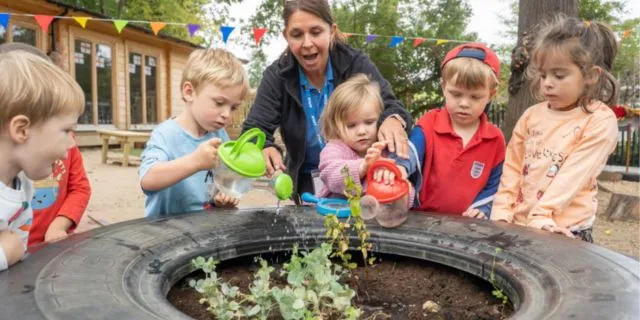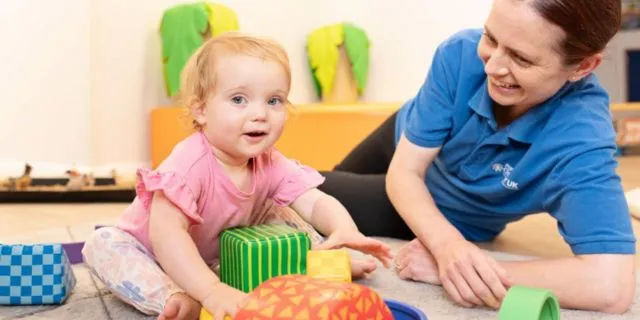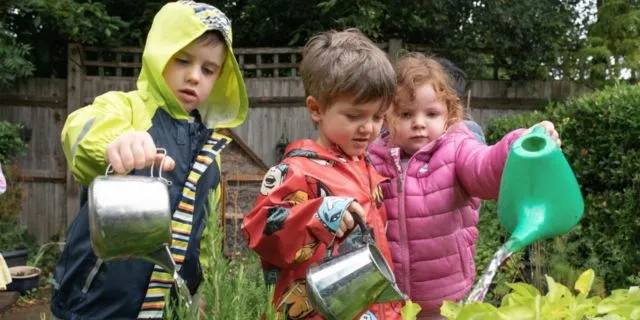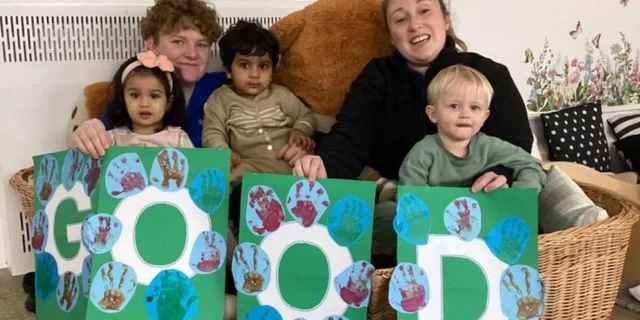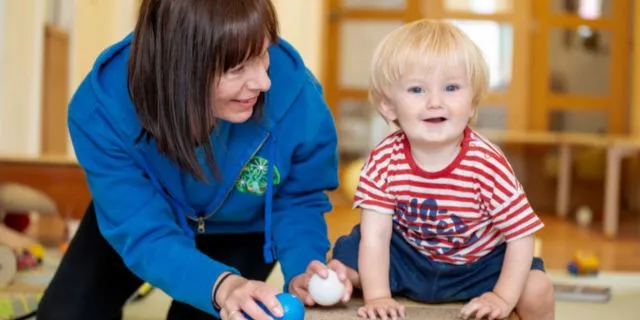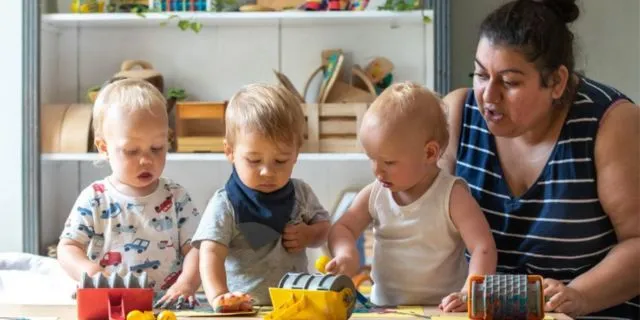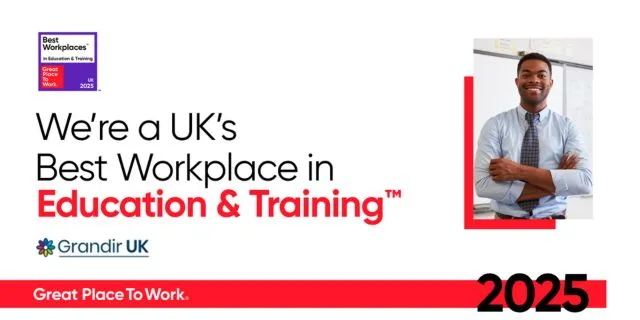
Early Years Apprenticeships offer people who are passionate about working with children an amazing opportunity to gain hands-on nursery experience whilst working towards a qualification. Whether you’re just starting out in your career or making a career change later on in life, an Early Years apprenticeship is accessible to you. In this blog, we speak to Tara, who qualified as an Early Years professional in early 2024 at the age of 50. Her inspiring journey of success highlights the challenges and triumphs of working towards a qualification while balancing work and family life. Following her interview, we provide advice on what to expect from an Early Years apprenticeship and how to prepare for success.
How long have you worked in Early Years?
I started working in a day nursery at 17 years old as an unqualified member of staff, which led to fantastic opportunities for apprenticeships in the field. I’ve been in Early Years for 33 years in total.
Why did you wait so long before deciding to study for your qualification?
Initially, I was going to sign up at college when I left school but I decided that wasn’t for me. I had fairly low self-esteem and felt uncomfortable pursuing further education, so I left it. I then had my children and I still wanted to become qualified but at that time there were no opportunities available to me.
There are various levels of childcare apprenticeships available, such as Level 2 – Early Years Practitioner, Level 3 – Teaching Assistant, Level 3 – Early Years Educator, Level 4 – School Business Professional, Level 4 – Children, Young People and Families Practitioner, Level 5 – Early Years Lead Practitioner, and Level 5 – Children, Young People and Families Manager, which provide valuable hands-on experience and recognized credentials. I did find an online L2 course which I completed only to find out it was not full and relevant which then made me feel demotivated.
What made you decide to study for a qualification?
When I started working at Kiddi Caru Grange Park I was surrounded by a wonderful supportive team who encouraged me to go for it. They encouraged me to become an early years apprentice and enrol in a childcare apprenticeship that provided both practical experience and dedicated study time. With the help of the support office also, I was able to enrol onto a programme that suited my circumstances and supported my learning journey.
What were the biggest challenges you faced when undertaking the childcare apprenticeship and how did you overcome them?
For me, being a Mum, working and studying was really hard. The apprenticeship allowed me to gain hands-on experience while balancing my responsibilities as a Mum. I did feel guilty that I wasn’t spending enough time with my youngest son. However, I was able to find a way around this by getting him to do his homework alongside me studying. We would sit at the same table and this worked really well as we encouraged each other and supported our mutual development!
What are your top tips for anyone considering an apprenticeship at a later stage in life to gain hands on experience?
I think when you are balancing home life with working and studying, especially in apprenticeships, you need to make sure you are ultra-organized. You need to allocate time for studying and be strict with yourself to make sure you get it done. Allocating time for studying and planning learning activities is crucial to stay on track. You also need to be aware that ‘life’ will throw you curveballs that will get in the way but it’s important to remember that you have a team around you to help you through. You can lean into the support from your colleagues, training provider, and company as they want you to succeed as much as you do.
What are your plans for the future?
I haven’t got any major plans, I feel so incredibly proud and also a sense of relief that after 33 years in early years I have finally achieved my qualification. I intend to use the knowledge I have gained through studying with my experience to shape the lives of each child I work with, I care about the adults they will become and I believe the work we do in early years is key to this.
I hope to inspire future early years apprentices to pursue their qualifications and make a difference in the field.
Tara passed her L3 qualification with ‘Distinction’
We are so proud of Tara and all her achievements, she is proof that it is never too late to accomplish what you put your mind to. From all of us at Grandir UK – well done!
What to expect whilst studying for an Early Years apprenticeship
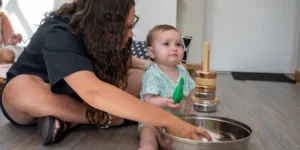
Training
Entry requirements
Best preparation tips
Before taking an Early Years apprenticeship, there are a few things you can do beforehand to make your start as smooth as possible.
1. Familiarise yourself with Early Years education
Having a basic understanding of how children learn and develop is a great starting point for your apprenticeship, preparing you to one day lead enriching learning activities that will be actively helping children develop.
You can simply read about this online or through Early Years books.
2. Improve your communication skills
Working with families, nursery practitioners, children and fellow apprentices requires clear, consistent and patient communication. Working on your active listening skills and teamwork will help you build your confidence within the nursery setting.
3. If possible gain some hands-on experience
Spending some time in a childcare setting even if it’s through volunteering is a great way to gain valuable insight into the Early Years setting. This will also be a basis for some good background knowledge before you start your apprenticeship.
4. Try and stay organised
Ensuring that you stay organised in an aspect which is going to help you significantly throughout your studies, balancing your practical work and academic studying is key. In advance, set up a study schedule and keep a range of notes and resources to help you stay on track.
5. Prepare for hands-on learning
Learning on the job is at the core of apprenticeships. Be ready to ask questions, take initiative, and apply what you learn in real-life scenarios.
Ultimately, Having an Early Years apprenticeship is very appealing to employers, as it demonstrates both practical experience and a strong foundation in the childcare industry. Whether this is just the start of your career and you’re in the process of deciding what you want to do or, like Tara, you’re taking a new path later in life, an apprenticeship provides invaluable skills, knowledge, and hands-on learning that can open doors to a rewarding future in Early Years education.
Want to find out more?
Click here if you would like to find out more about apprenticeships in childcare.
A career in childcare
If you love working with children and are interested in a career in childcare, explore our available positions here.
Share this article
Related blog/news
Swipe to see our latest articles.

